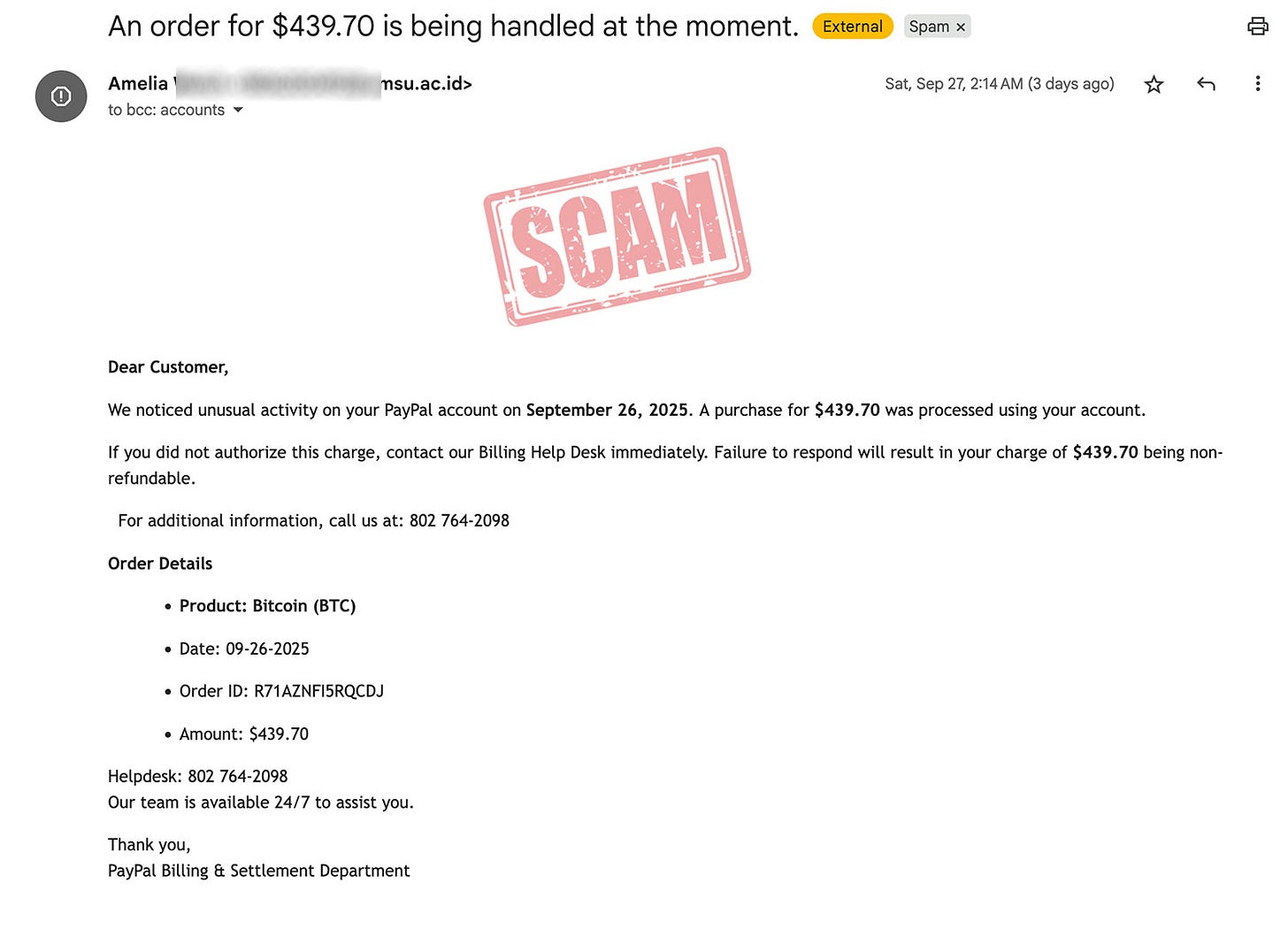PayPal Users Targeted by Fake $439.70 Bitcoin Purchase Scam
Bogus PayPal “Bitcoin Order” Wants Your Card Details
tl;dr
Scammers are sending fake PayPal emails claiming you’ve been charged several hundred dollars for Bitcoin. The email urges you to call a “Help Desk” number for a refund. If you do, scammers will try to steal your credit card details and personal information. These messages are not from PayPal. If you receive one, delete it!
The Scam Email
A phishing email is circulating that pretends to be from PayPal. The message claims that a purchase of $439.70 worth of Bitcoin has been made on your account. It warns that unless you contact their Billing Help Desk immediately, the charge will remain non-refundable.
The email includes details such as an Order ID, purchase date, and a customer service number to make it look more convincing.
Here’s an excerpt:
“We noticed unusual activity on your PayPal account…A purchase for $439.70 was processed using your account… If you did not authorize this charge, contact our Billing Help Desk immediately.”
What Really Happens
The email is not from PayPal. The order details are entirely fake. There has been no purchase of Bitcoin on your account.
If you call the number provided, you won’t reach PayPal. Instead, you’ll be speaking directly with scammers. They will pretend to be PayPal staff and claim they can process a refund. But first, they’ll ask you to provide sensitive information such as:
Your credit card details
Other financial information
Other personal identifiers
Once they have this information, they can commit credit card fraud and even use your details for identity theft.
How to Spot the Scam
Unusual sender address: The scam email (see the screenshot below) originated from an email domain not associated with PayPal.
Phone number pressure: PayPal does not ask users to resolve account issues by calling random numbers in emails.
Generic greeting: Genuine PayPal messages always use your real name. Scam messages typically begin with generic greetings, such as “Dear Customer.”
Threats and urgency: Phrases like “Failure to respond will result in your charge being non-refundable” are designed to panic you into acting without due forethought.
How to Stay Safe
Do not call the number or reply to the email.
Check your real PayPal account by logging in directly through the official website or app.
If you’re concerned about a charge, contact PayPal through the official help channels listed on their website.
Delete the scam email immediately.
Conclusion
This PayPal “Bitcoin purchase” email is just one variation of a very common scam. The goal is simply to trick you into handing over your financial information. Stay cautious, ignore the message, and always verify suspicious claims directly with PayPal through official channels.




Great info!